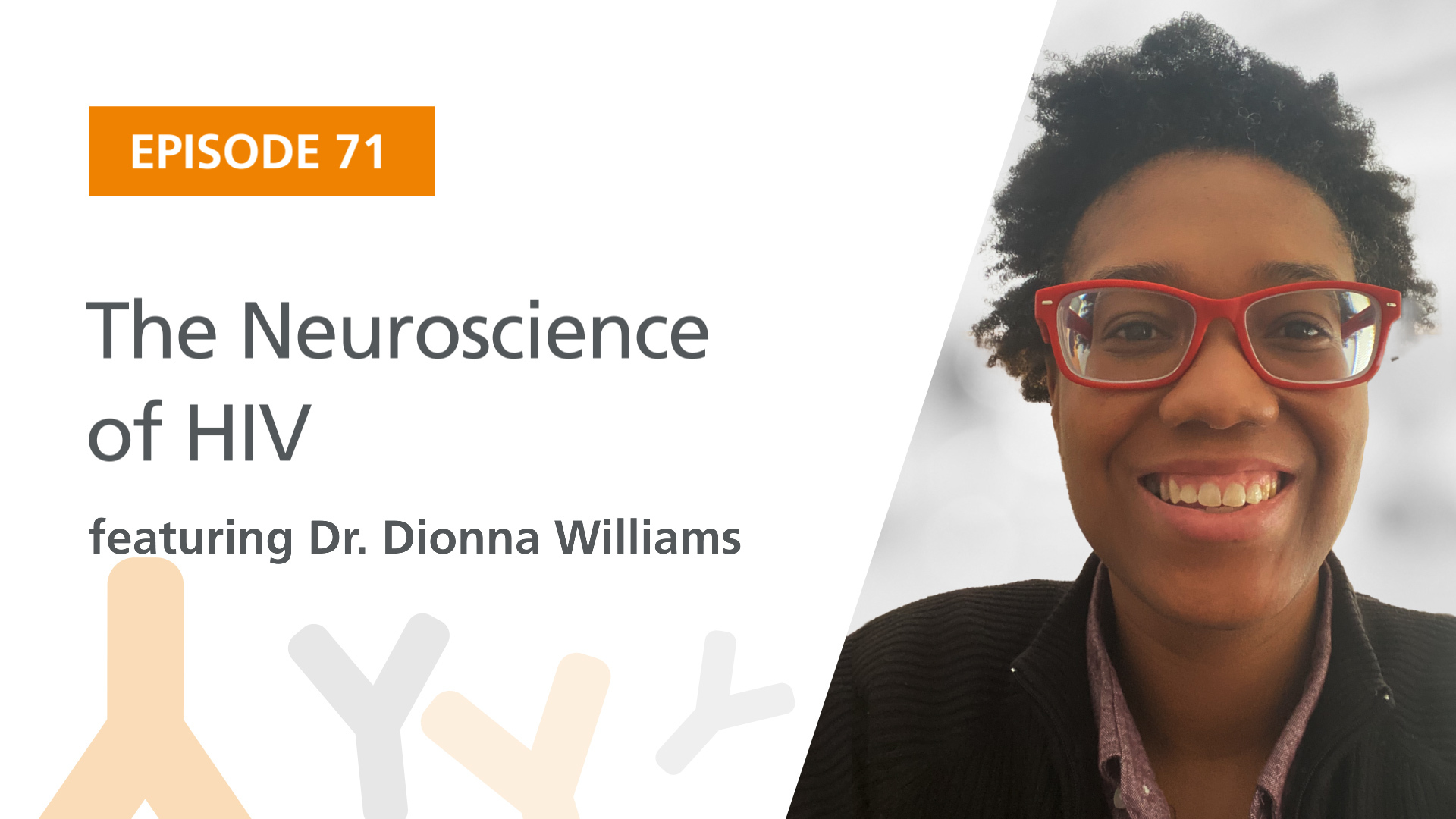
Guest:
Dr. Dionna Williams is an Acting Associate Professor in the Department of Pharmacology & Chemical Biology at Emory University. Their research focuses on the effects of HIV infection on the brain. She talks about how HIV affects immune cells in the brain and how this can lead to neuropsychiatric symptoms. They also discuss therapeutic approaches, factors that affect how drugs can reach the brain, and moving their lab to Atlanta.
Featured Products and Resources:
- Sign up now for IMMUNOLOGY2024
 , happening May 3-7 in Chicago.
, happening May 3-7 in Chicago. - Get Updates about New Mentorship Content
The Immunology Round Up
A Long Covid Blood Signature – Active Long Covid is accompanied by a blood protein signature marked by increased complement activation and thromboinflammation.
T Cells in Guillain–Barré Syndrome –Autoreactive T cells that target myelin antigens in the peripheral nerves are present in patients with the demyelinating form of Guillain–Barré syndrome.
A CAR-NK Cell Clinical Trial – Researchers identified features of donated cord blood associated with improved response to CAR-NK cell therapy for B cell malignancies.
Cas9-Packaging Enveloped Delivery Vehicles – Researchers developed an antibody-directed strategy for delivering genome engineering tools to specific cell types.
Image courtesy of Dr. Dionna Williams


